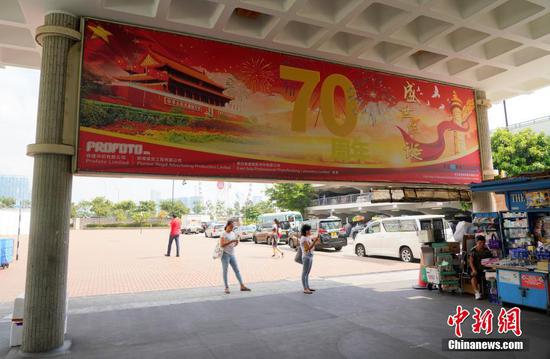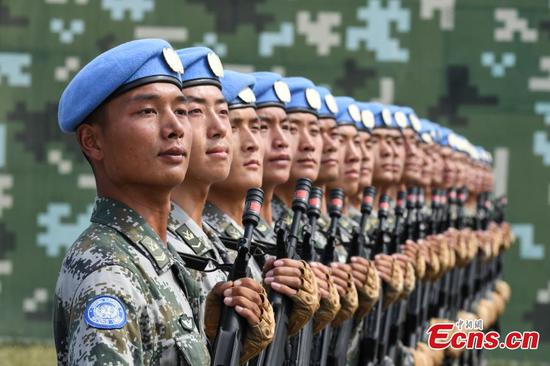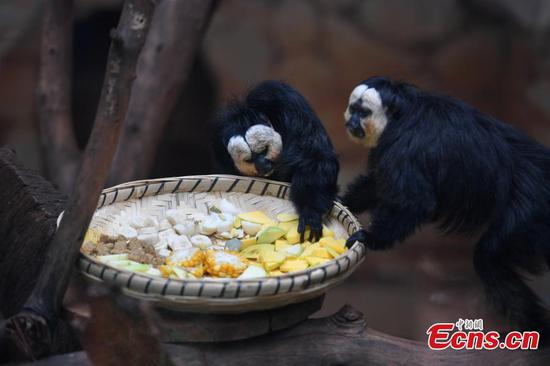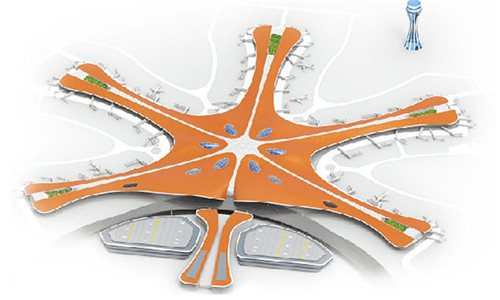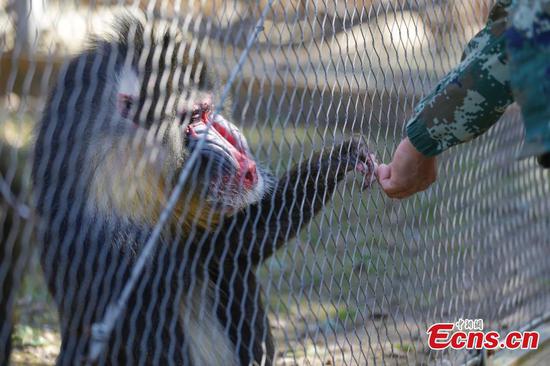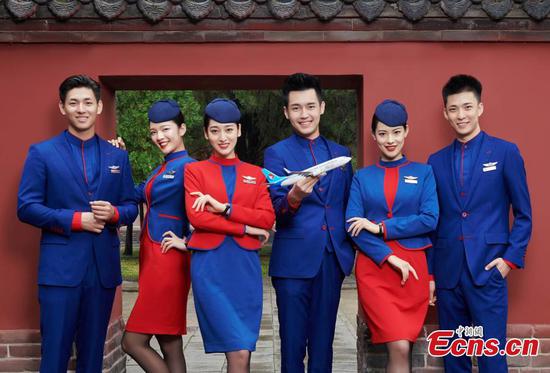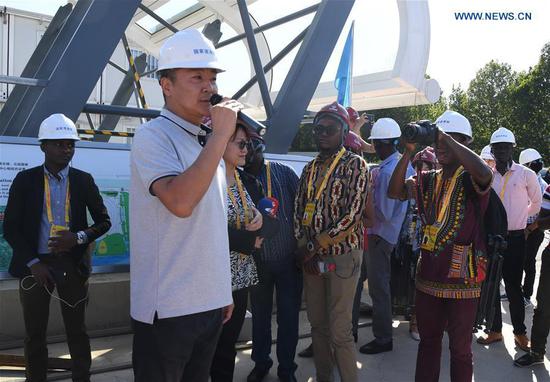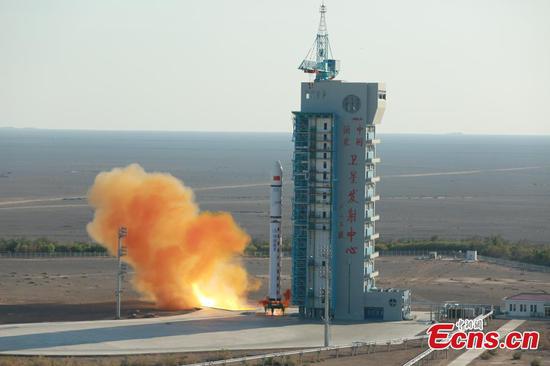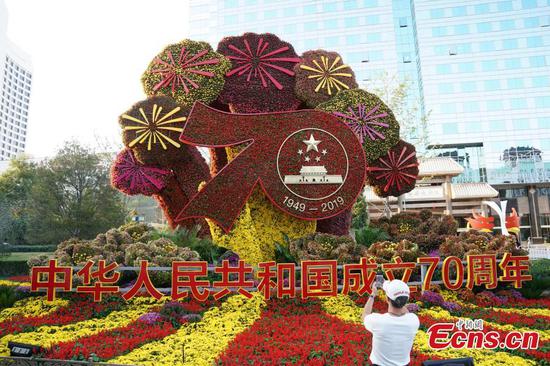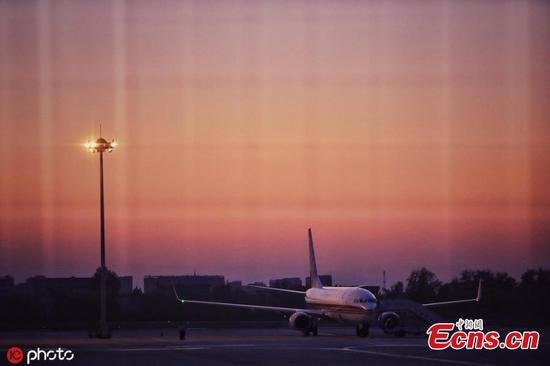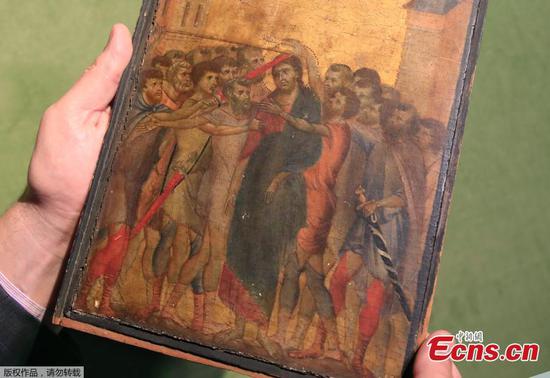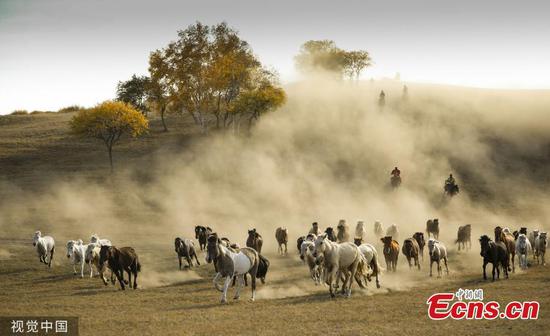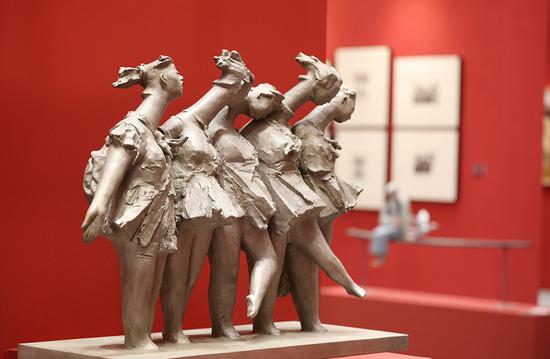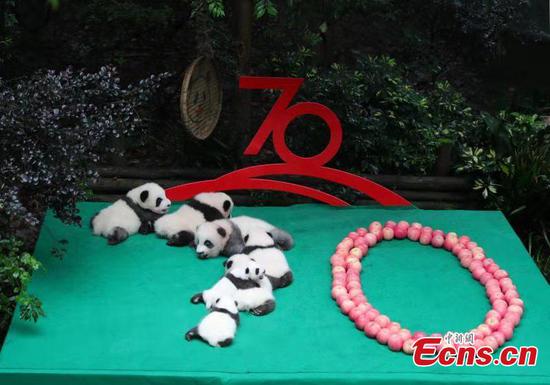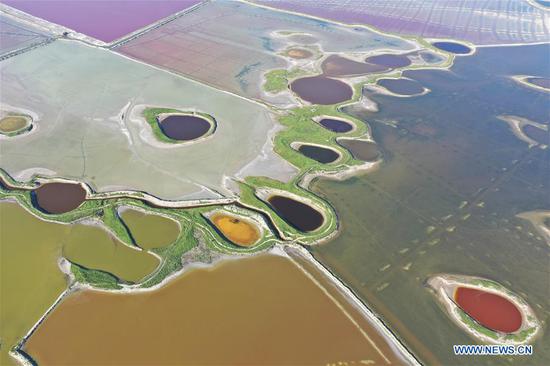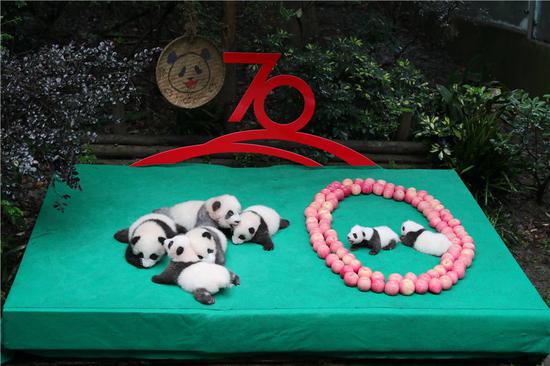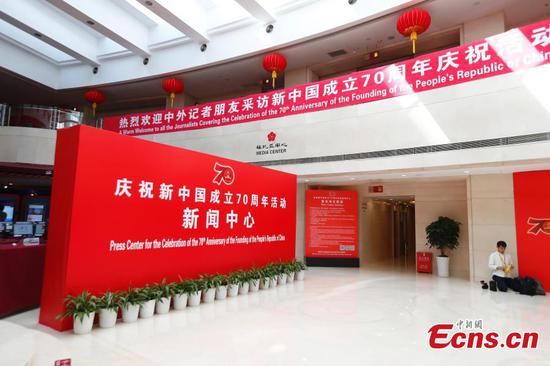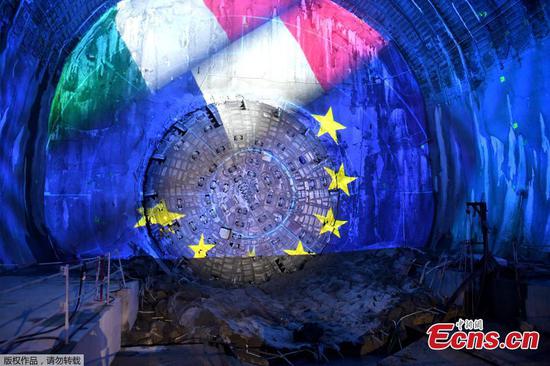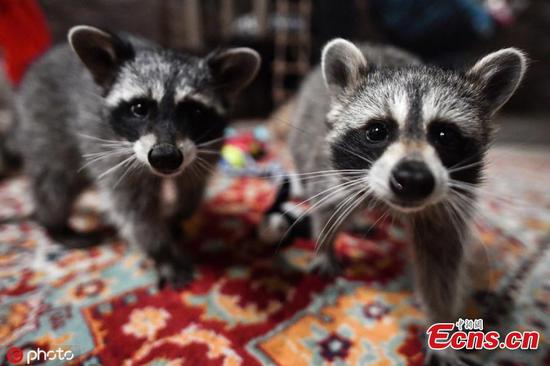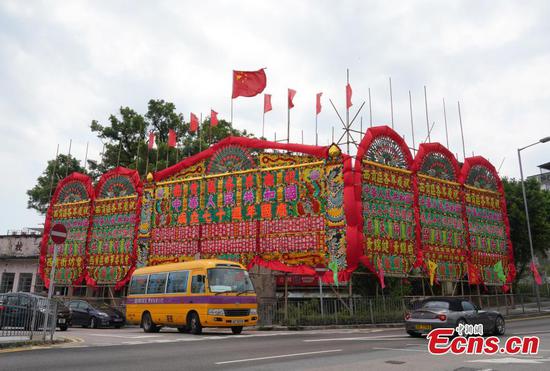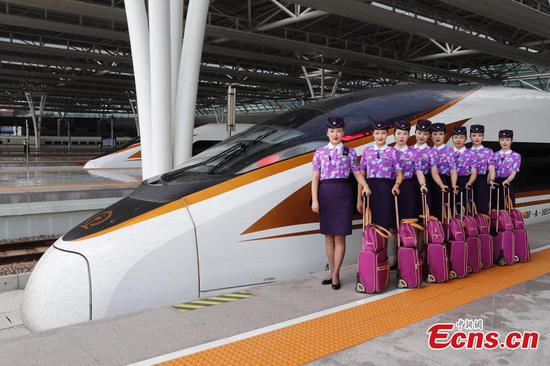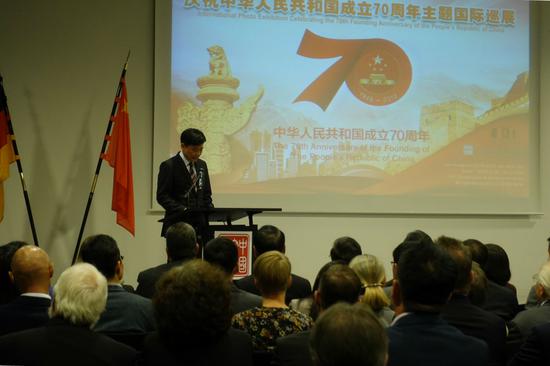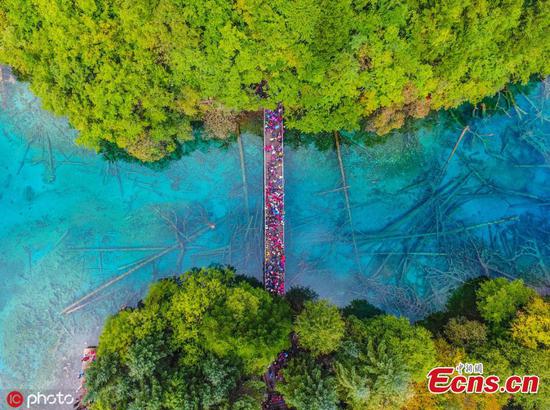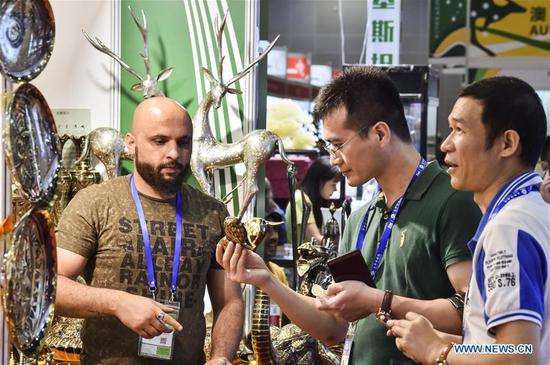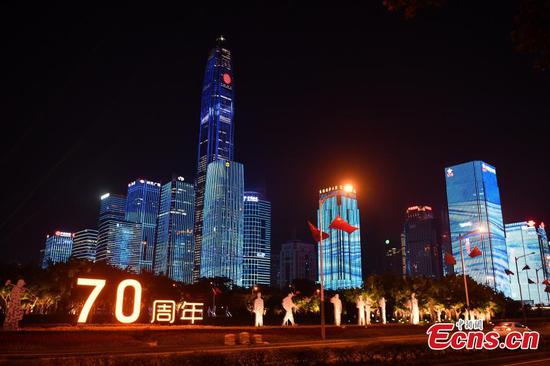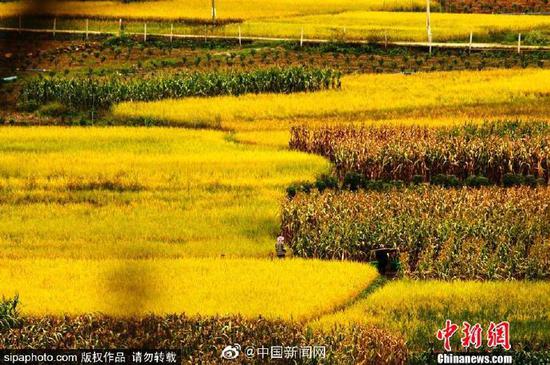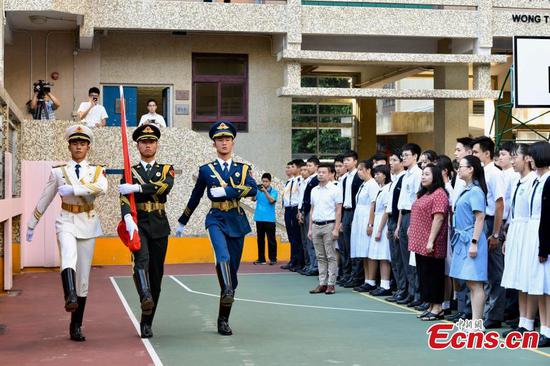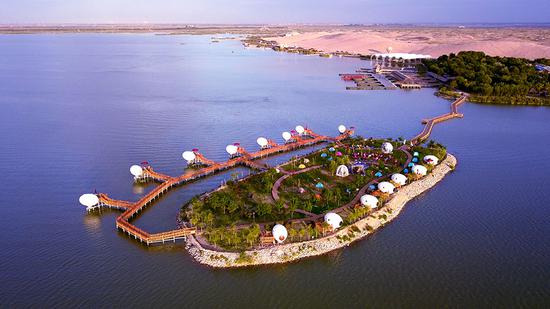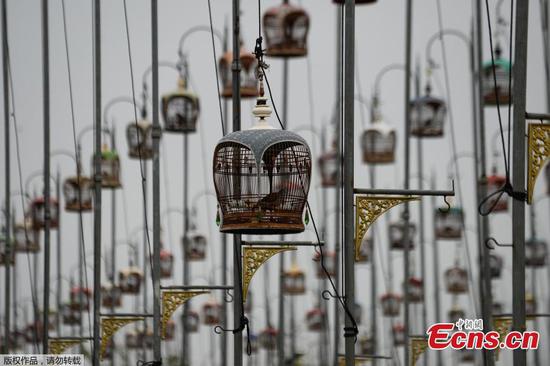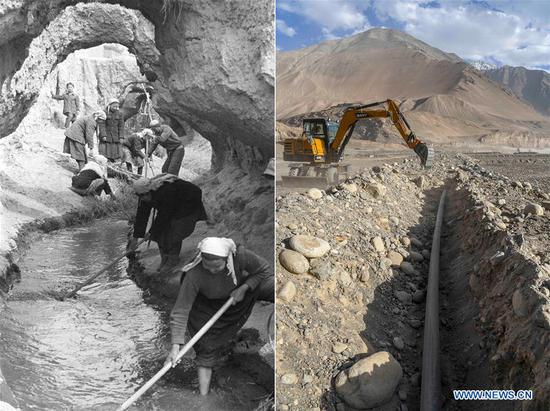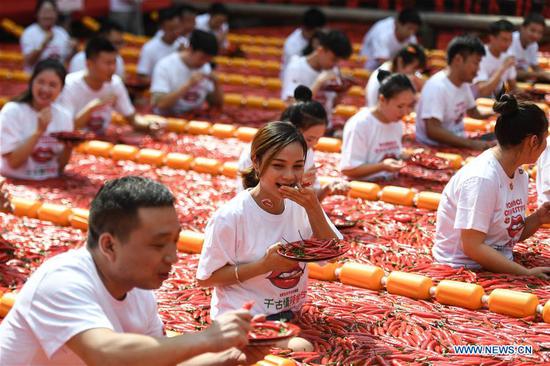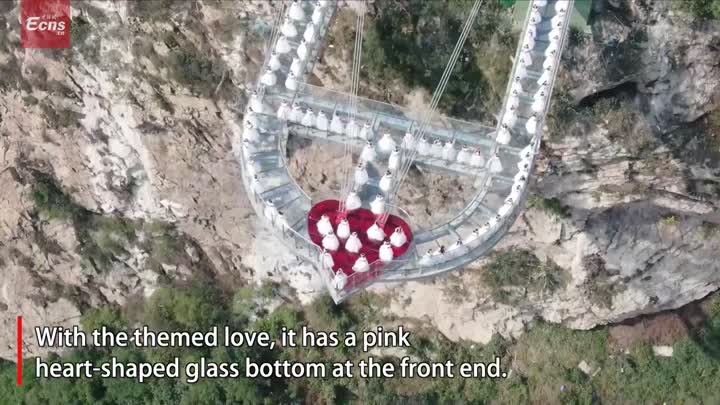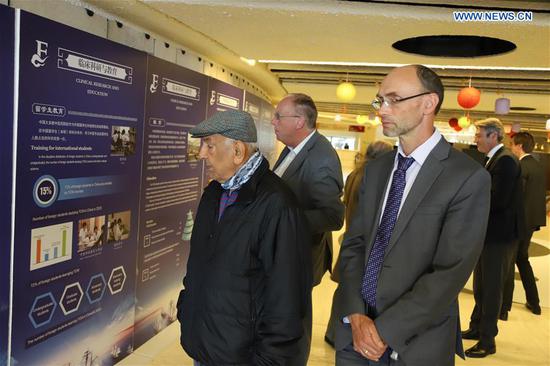
People visit an exhibition of traditional Chinese medicine (TCM) at the United Nations Office at Geneva, Switzerland, on Sept. 24, 2019. An exhibition of traditional Chinese medicine (TCM) was staged at the UN Office at Geneva (UNOG) on Tuesday, to bring the unique part of the medical treasure in human history and the Chinese culture closer to the modern world. (Xinhua/Chen Junxia)
An exhibition of traditional Chinese medicine (TCM) was staged at the UN Office at Geneva (UNOG) on Tuesday, to bring the unique part of the medical treasure in human history and the Chinese culture closer to the modern world.
Co-hosted by the Chinese Mission to UNOG and China's National Administration of Traditional Chinese Medicine, the exhibition, titled "Discovering the Culture and Traditional Chinese Medicine," not only introduced the philosophy and basic principles of the TCM, including the ancient acupuncture and moxibustion as part of the UNESCO intangible cultural heritage, but also let the visitors interact with TCM specialists and experience in person the application of the TCM with the help of modern technology.
One of the devices presented at the event, for instance, was developed by Shanghai University of TCM to scan the user's face, tongue coating and conduct a consultation before having a test report and a personal health plan within two minutes. The plan will have suggested daily diet and exercises. The user can then save the report in smartphone by scanning a QR code.
The exhibition also brought about live stage show of Chinese health exercises.
In his opening remarks at the exhibition, Chen Xu, head of the Chinese Mission to UNOG, said that health is a common human desire and one of the top priorities of the United Nations, while the TCM approaches healthcare from a holistic and dialectic standpoint, and believes the processes of the human body are connected to the environment.
"It echoes the WHO's definition of health and embodies the Chinese cultural belief in the harmonious co-existence of man and nature," said Chen, adding "the cultural tradition behind it is also a source of strength for the harmony and sustainable development of our world today."









